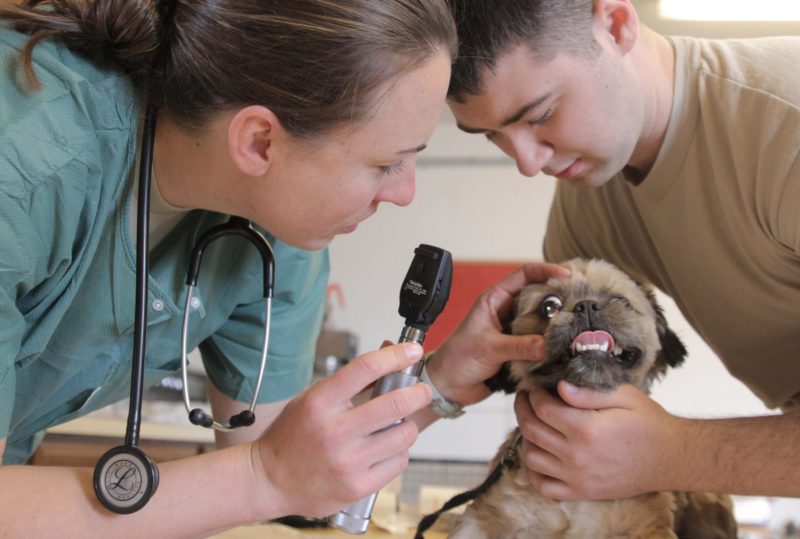Three of nine Board of Veterinary Medical Examiners officials resigned Thursday after Texas’ review board of state agencies issued a scathing report detailing problems with the board.
The bipartisan Texas Sunset Advisory Commission found the veterinary board mismanaged finances, failed to keep track of controlled substances meant for animals, and poorly handled some recent cases before them. The commission recommended that the current board members end their terms on Sept. 17, 2017.
The advisory commission’s report also recommended changes in how the board handles complaints, governs controlled substances and manages their finances.
Sen. Kirk Watson (D-Austin), part of the Sunset review board, says the veterinary board is “in shambles.”
“The report that came back said this is an agency that must be repaired,” Watson says.
Watson says he thinks it was wrong of the board members to resign.
“I don’t think they were showing the kind of responsibility that they ought to be showing,” he says. “But the truth of the matter is we’ll work closely with the governor’s office, and I have no doubt that the governor will put new people in those positions.”
The veterinary board pointed to a few cases that contributed to an overwhelm in their workload.
In one 2016 case, the board received 750 complaints after a veterinarian posted a photo of her holding up a dead cat with an arrow she shot through its head. The board filed a complaint in favor of a one-year suspension for the veterinarian. The veterinarian, Kristen Lindsey also filed suit against the veterinary board.
In another 2013-2014 case, the board implemented a controversial rule stating that all shelters must have a full-time veterinarian on staff. Advocates argued that would hinder efforts to maintain a no-kill status in shelters. The Sunset Advisory Commission says this is outside the veterinary board’s purview.
“There’s no question that when there became almost an obsession with a single case that that took a lot of time, took a lot of energy away from the management of the agency,” Watson says. “One of the things that was pointed out in the hearing back in November was that when the agency was reporting that instance, that case, to the Sunset Commission, it failed to fully report how that all played out. So there was actually a feeling that they weren’t candid with the Sunset Commission on how they had become obsessed with that.”
Watson says his staff is already working on legislation on the 2013-2014 case, although that is not part of the Sunset Commission’s recommendations.
“What we do is we allow for there to be appropriate regulation. but it’s appropriate in the sense that it also allows for there to be innovation and thought in how we could do new things,” Watson says, “so that we can save these pets, save these animals, as opposed to just euthanizing them.”
Post by Beth Cortez-Neavel.
















